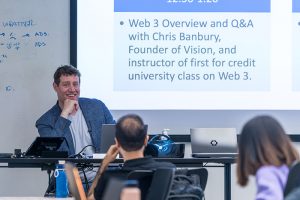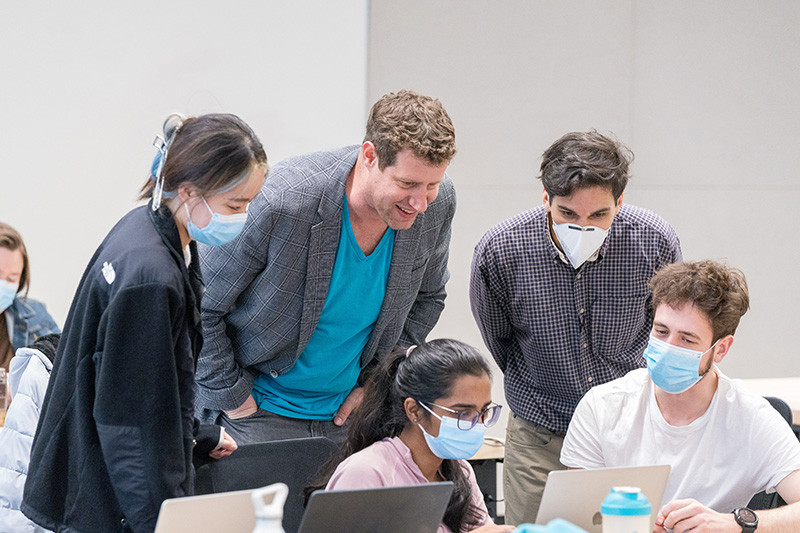Students in the MS in Technology Innovation program recently participated in a two-day workshop on Web 3.0, a next generation of web technology built on blockchain.
Day one of the Web 3 workshop, led by tech entrepreneurs Chris Banbury of Vision and Ehsan Shariati of Functionland, introduced MSTI students to the basics of Web 3 and its applications. Web 3 is a new technology aimed at making the internet even more distributed, open, and intelligent through data decentralization and shared ownership. The workshop provided students with hands-on experience through collaborative development of a server network of Raspberry Pis designed to withstand the failure of individual notes without data loss. This distributed, private network uses technology to ensure data redundancy and access across the whole network. This demonstration of private, shared storage is key to Web 3: rather than having a centralized storage owned by a singular corporation, data is stored and owned by individual users who have access to their own encrypted content.

“What excites me the most about Web 3.0 is the ability to truly collaborate across borders and the cool things that will emerge from this borderless collaboration,” said Chris Banbury, founder of Vision, a social network that decentralizes the innovation process. “Diverse viewpoints lead to outside the box thinking.”
This collaborative mindset is the driving principle for Functionland, a startup creating blockchain-attached storage systems. Their private cloud-storage system gives users local access to their data while ensuring it is distributed across other systems (boxes) for redundancy. Functionland uses blockchain technology to ensure that data remains encrypted and accessible, without relying on third-party hosts.
Banbury and Shariati showed students how to implement peer-to-peer connections using Web 3. “The first people to truly understand Web 3 will build the foundational communities that will lead the next generation of global organizations,” said Chris. “These communities will be founded on the sovereignty of self where control of data and identity lead to the democratization of socioeconomic activities.”
“We really learned practical tools,” said Teja Balu, an MSTI student. “We were able to implement what we learned that day. Being able to look at something and then do it was really helpful.”

“The workshop opened up a whole new set of possibilities,” said Manasa Sama, an MSTI student. “It changed how I think about using blockchain in our projects and what we can do with it.”

